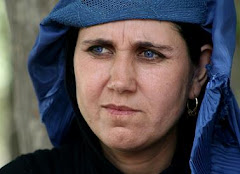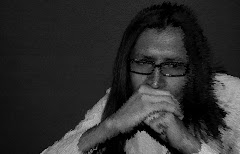Kenneth Roth, executive director of Human Rights Watch.
(New York, January 2, 2009) - The Iranian government should immediately end its campaign of persecution against Dr. Shirin Ebadi, which has now escalated to mob threats and violence against her home, the International Campaign for Human Rights in Iran and Human Rights Watch said today. Dr. Ebadi is the 2003 Nobel peace laureate and is a leading human rights defender in Iran.
The human rights organizations expressed grave concerns for Ebadi's safety following a violent demonstration outside her home in Tehran on January 1, 2009.
"The mob violence occurring after the Iranian government unleashed its campaign of persecution against Shirin Ebadi shows that her life is in great danger," said Kenneth Roth, executive director of Human Rights Watch. "Especially because the persecution of Ebadi seems to be related to her contacts with United Nations officials who were compiling a report on human rights in Iran, UN and concerned leaders everywhere should urgently make clear their support for this principled defender of human rights."
Ebadi reported to the media that 150 people demonstrated outside her building chanting slogans against her. They tore down the sign to her law office, which is in the same building, and marked the building with graffiti. The mob dispersed after half an hour when police arrived.
In an interview with the International Campaign for Human Rights in Iran, Ebadi said: "regardless of all pressures, I am not leaving Iran and I am not ceasing my human rights activities. I will continue on the same path."
There is increasing evidence that the government's persecution of Ebadi has intensified because of her contact with UN human rights officials and their use of information provided by her center in a report by the UN secretary-general on the situation of human rights in Iran. The report was released in October 2008 and contributed to a critical UN General Assembly resolution on Iran.
Newspapers and websites close to the Iranian government have criticized Ebadi for months and have stepped up their calls for her prosecution because of the secretary-general's report. On January 1, the Students News Network, a news site close to Iran's Intelligence Ministry, published an article entitled "Ebadi's Safety Margins Removed."
The article called for Ebadi's prosecution because she provided information to UN officials: "One of the activities of [Ebadi's] center against the state, was to transfer various information from inside the country to the United Nations which led to issuance of a resolution against Iran on the human rights situation. Mr. Ban Ki-moon explicitly mentioned the importance of these reports in the process of his report and issuing the resolution... Aren't these actions equivalent to transferring or selling of information to foreigners?"
The government of Iran has an affirmative obligation to protect rights advocates. The United Nations Declaration on Human Rights Defenders, which the UN General Assembly adopted by consensus in 1998, declares that states "shall take all necessary measures to ensure the protection by the competent authorities of [human rights defenders] against any violence, threats, retaliation, de facto or de jure adverse discrimination, pressure or any other arbitrary actions" as a consequence of their legitimate effort to promote human rights.
"It is absolutely unacceptable that Dr. Ebadi is being threatened because she had legitimate interactions with UN officials. As a member state, Iran has every obligation to facilitate such interactions and to ensure Ebadi's safety," said Hadi Ghaemi, coordinator of the International Campaign for Human Rights in Iran.
Human Rights Watch and the International Campaign for Human Rights in Iran strongly urged concerned governments and intergovernmental bodies to call on the Iranian government to take all necessary steps to ensure Ebadi's safety and her ability to continue her human rights work.
The human rights organizations expressed grave concerns for Ebadi's safety following a violent demonstration outside her home in Tehran on January 1, 2009.
"The mob violence occurring after the Iranian government unleashed its campaign of persecution against Shirin Ebadi shows that her life is in great danger," said Kenneth Roth, executive director of Human Rights Watch. "Especially because the persecution of Ebadi seems to be related to her contacts with United Nations officials who were compiling a report on human rights in Iran, UN and concerned leaders everywhere should urgently make clear their support for this principled defender of human rights."
Ebadi reported to the media that 150 people demonstrated outside her building chanting slogans against her. They tore down the sign to her law office, which is in the same building, and marked the building with graffiti. The mob dispersed after half an hour when police arrived.
In an interview with the International Campaign for Human Rights in Iran, Ebadi said: "regardless of all pressures, I am not leaving Iran and I am not ceasing my human rights activities. I will continue on the same path."
There is increasing evidence that the government's persecution of Ebadi has intensified because of her contact with UN human rights officials and their use of information provided by her center in a report by the UN secretary-general on the situation of human rights in Iran. The report was released in October 2008 and contributed to a critical UN General Assembly resolution on Iran.
Newspapers and websites close to the Iranian government have criticized Ebadi for months and have stepped up their calls for her prosecution because of the secretary-general's report. On January 1, the Students News Network, a news site close to Iran's Intelligence Ministry, published an article entitled "Ebadi's Safety Margins Removed."
The article called for Ebadi's prosecution because she provided information to UN officials: "One of the activities of [Ebadi's] center against the state, was to transfer various information from inside the country to the United Nations which led to issuance of a resolution against Iran on the human rights situation. Mr. Ban Ki-moon explicitly mentioned the importance of these reports in the process of his report and issuing the resolution... Aren't these actions equivalent to transferring or selling of information to foreigners?"
The government of Iran has an affirmative obligation to protect rights advocates. The United Nations Declaration on Human Rights Defenders, which the UN General Assembly adopted by consensus in 1998, declares that states "shall take all necessary measures to ensure the protection by the competent authorities of [human rights defenders] against any violence, threats, retaliation, de facto or de jure adverse discrimination, pressure or any other arbitrary actions" as a consequence of their legitimate effort to promote human rights.
"It is absolutely unacceptable that Dr. Ebadi is being threatened because she had legitimate interactions with UN officials. As a member state, Iran has every obligation to facilitate such interactions and to ensure Ebadi's safety," said Hadi Ghaemi, coordinator of the International Campaign for Human Rights in Iran.
Human Rights Watch and the International Campaign for Human Rights in Iran strongly urged concerned governments and intergovernmental bodies to call on the Iranian government to take all necessary steps to ensure Ebadi's safety and her ability to continue her human rights work.
see this link :Human Right watich


.jpg)




0 نظرات:
Post a Comment